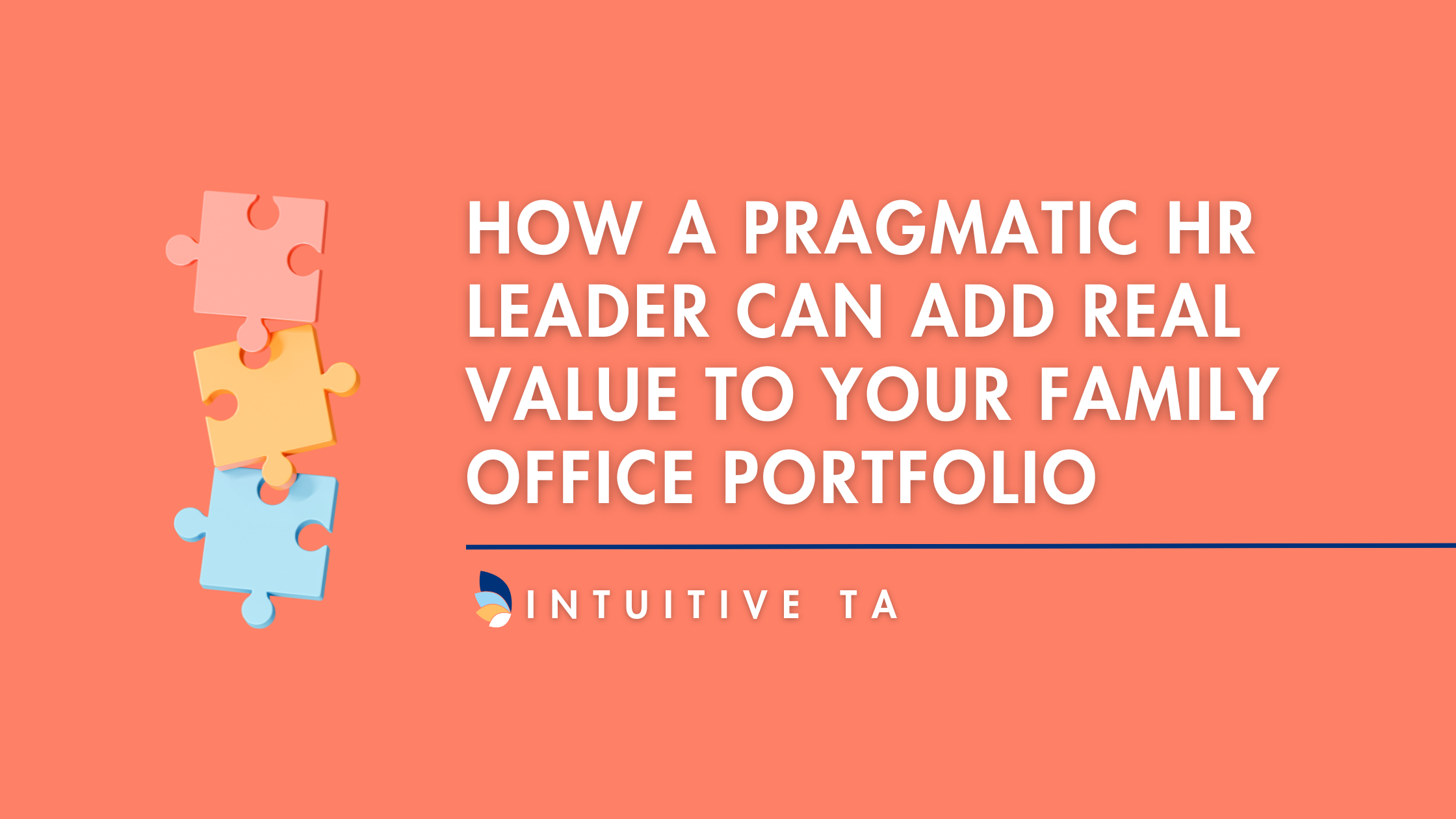Family offices often oversee multiple businesses with very different goals, cultures, and leadership styles. While this diversity is a strength, it can also create challenges around talent, governance, and alignment challenges that aren’t always obvious until they impact results.
A practical, experienced HR leader can help turn these challenges into opportunities. Here’s how family offices can make the most of this role:
- Identify and navigate competing interests. A neutral HR leader can mediate between family members and portfolio CEOs, ensuring decisions are fair and focused on long-term outcomes.
- Streamline practices without stifling independence. They create consistent reporting, policies, and talent frameworks that respect each business’s unique goals.
- Improve talent outcomes across the portfolio. From recruitment to retention and succession planning, a strategic HR perspective ensures the right people are in place where they matter most.
- Protect the family’s reputation and legacy. Governance, ethical standards, and compliance are embedded across all businesses before issues arise.
- Translate strategy into people-focused action. They connect the dots between family objectives and workforce execution, helping each business deliver better outcomes without compromising autonomy.
Bottom line: Adding a pragmatic HR leader isn’t just about handling HR tasks. It’s about building cohesion, insight, and resilience across the family office portfolio so that people and business goals align, and the family’s legacy is protected and strengthened.
If you’re exploring ways to bring strategic HR expertise into your office, having a conversation early can help identify how this role might strengthen your portfolio and improve outcomes reach out to us


